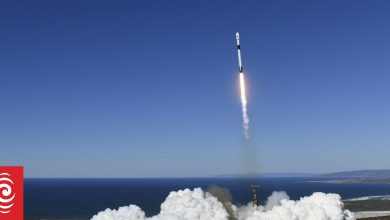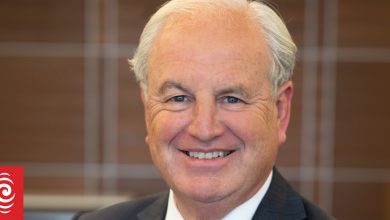Watch: PM Christopher Luxon and Premier Li Qiang speak at conference

Prime Minister Christopher Luxon has brushed off questions about why Chinese Premier Li Qiang was not in attendance at the stand-up where journalists posed questions about the bilateral talks after their joint news conference.
Li is the highest-ranking Chinese leader to visit New Zealand in seven years. It comes as regional security concerns begin to overshadow the lucrative trade ties which had until recently dominated the New Zealand-China relationship.
He was officially welcomed in Wellington on Thursday afternoon, before having a meeting with Luxon.
The meeting was followed by a joint conference, where Li spoke about extending “unilateral visa-free treatment to New Zealand”, supporting cultural exchanges through Confucius institutes and classes and Chinese cultural centres, “to actively participate in transport investment and infrastructure development in New Zealand”, and inviting New Zealand to be the guest country of honour at the China International Import Expo in November.
Luxon said the AUKUS security pact, foreign interference, human rights in Xinjiang, and regional stability were among some of the big topics which were discussed with Li.
He would not go into details of how those issues were received by the premier, but he said China also raised its own disagreements with New Zealand.
Asked why Premier Li was not at the stand-up where journalists could pose questions, Luxon said those were decisions made around protocols.
“As you know, when you go offshore it’s different.”
On AUKUS discussions, Luxon said he would not go into what exactly was said but he reiterated comments about opportunity for co-operation versus registering disagreements.
“I’m not going through a blow-by-blow of everything that happened in a bilateral, suffice to say that I raised the differences that New Zealand has and likewise the Chinese raised their differences with us too.
“We canvassed AUKUS and they raised their concerns and we raised a number of concerns and differences that we have as well, that’s the nature of a good long-standing relationship, that we should be able to do that respectfully and predictably.”
Asked how much of the talks were about disagreements versus co-operation, he said it was 50-50.
A Stuff report was released today with allegations of China’s foreign interference in New Zealand.
Luxon said he had not yet read that report but did raise the matter of foreign interference, including the cyberattacks on the Parliamentary network which was revealed earlier this year.
“We’ve been pretty upfront about foreign interference. Our head of our intelligence agencies have been, through the public sessions and annual reviews, been very open in public and transparent about that.
“You saw myself a few months ago call out a cyberattack on New Zealand’s parliamentary systems, and we call that out, and we’ll continue to do that. We’ve got no tolerance for foreign interference from any country.
“I expressed our view that foreign interference’s are something that we do not support from any country.”
He said he underscored to Li the importance of China, as a major power, going through the Pacific Islands Forum for decision-making in the region, and to allow for “Pacific solutions to Pacific challenges”.
Luxon said they discussed the South China Sea and Taiwan Strait, and the government’s desire to see a de-escalation “so that there’s no miscalculation or accident that would threaten the stability in the region”.
“China is a very important citizen in the global community … and it’s an important one that has a big role to play and that’s why we talked about global issues as well with respect to Ukraine and Russia, we talked about Israel, Hamas and we talked about those big – North Korea for example – issues where I think China can actually play a very significant role and it needs to play a significant role as a major power.”
During the joint conference, Li said it was natural the two countries did not always see eye to eye on everything.
“But such differences should not become a chasm that block exchanges and co-operation between us, instead it should be a driving force for us to learn from each other and grow together.”
He said the two governments should abide by their norms of non-interference in internal affairs and promoting common understanding and tolerance through “equal-footed dialogue and exchanges”.
Luxon hoped to connect with President Xi Jinping in November at APEC and looked to go to China early next year.
Trade and CPTPP
Luxon said they signed a number of arrangements between the two governments which “will further support stronger co-operation between New Zealand and China on trade, economic and environment issues”.
Last week, Reuters reported China’s vice commerce minister was hoping New Zealand would play a more positive role in getting China’s application to join the Comprehensive and Progressive Trans-Pacific Partnership (CPTPP) approved.
Luxon said that was raised in the talks as well as China’s aim to join the Digital Economy Partnership Agreement, but he said there were clear criteria (called the Auckland Principles) in the CPTPP which needed to be met.
“It’s not something we lobby for per se, we don’t do that for any country.”
The Auckland Principles also include consensus among the group for a new applicant to join.
Look back at the live blog to read how the conference and stand-up unfolded:
According to the news on Radio New Zealand




